How to set up X-VPN on DD-WRT routers - OpenVPN
Ultima modifica il 2023-09-25
Step 1: Sign in to your X-VPN account on the website: https://xvpn.io/login
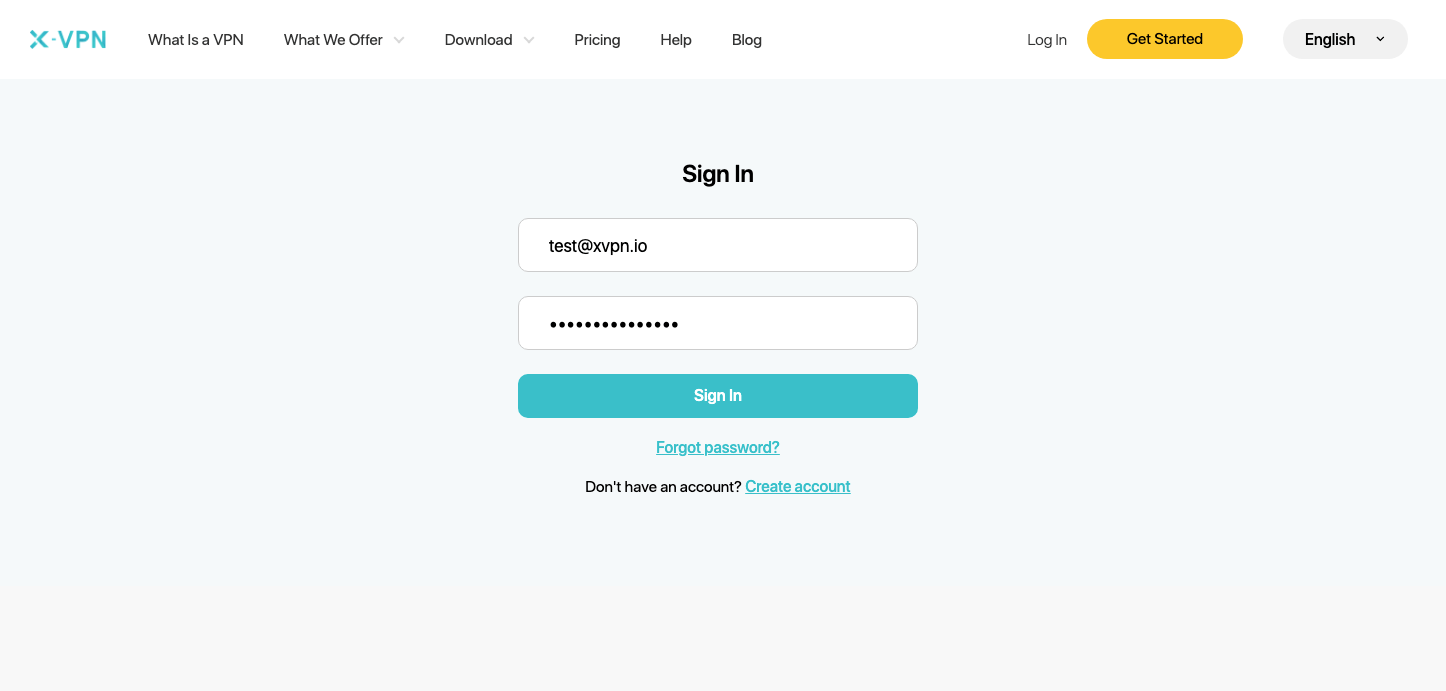
Note: Advanced configuration for Router is premium only, please make sure your account is premium.
Free users? Go premium to enjoy advanced benefits.
Step 2: Get your OpenVPN credentials and location configuration
Go to My Account > Router Settings > Choose "DD-WRT" under OpenVPN, then get credentials (username and Password ) and location configuration.
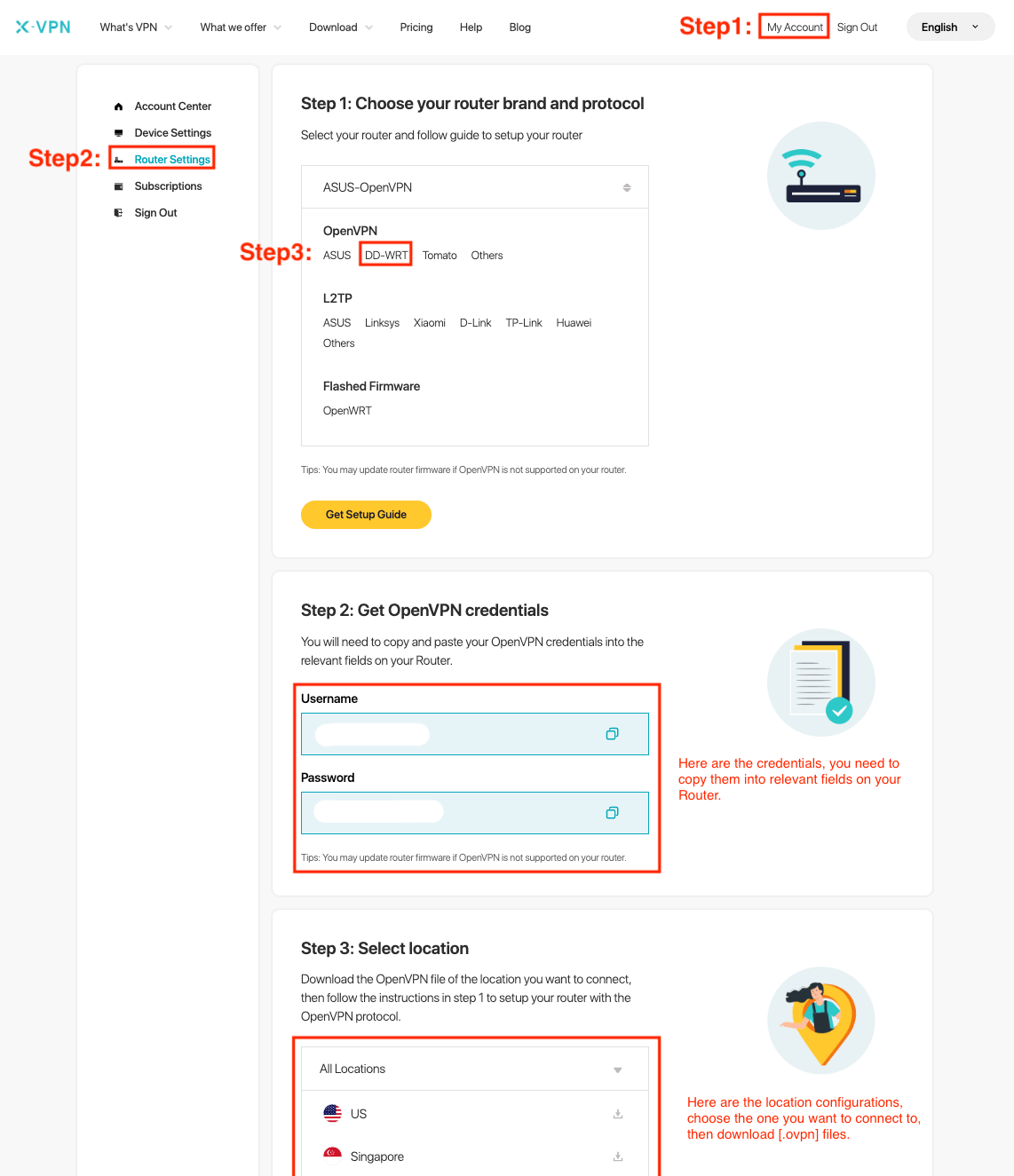
If you are setting up the Router for the first time, you will see the following page when you click Router Settings:
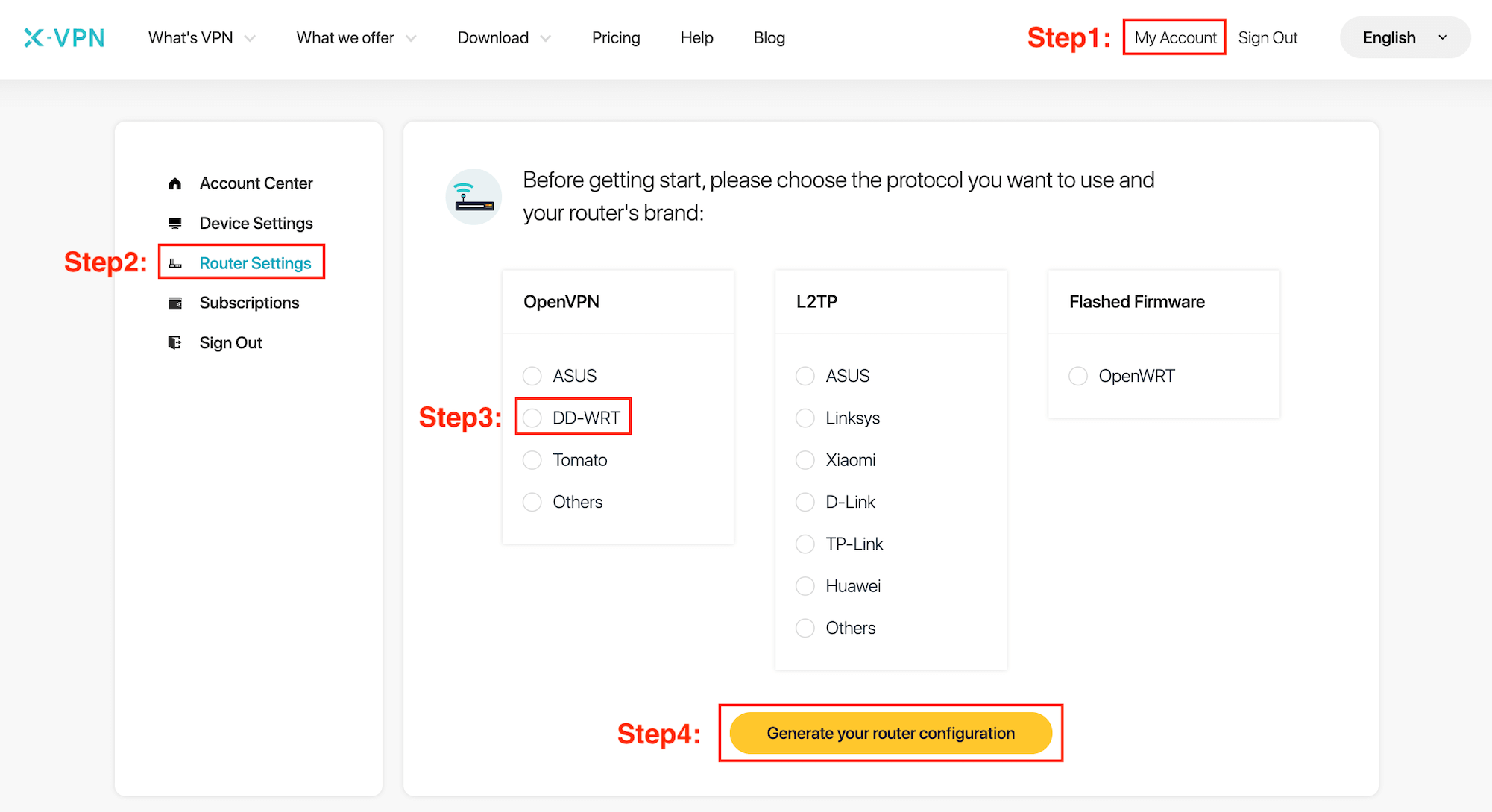
Choose Choose "DD-WRT" under OpenVPN > Tap "Generate your router configuration", then you can get to the Router Settings page as we mentioned above.
Step 3: Sign in to your DD-WRT account
Open the DD-WRT router control panel on a new tab/page: enter the IP address of your router - http://192.168.1.1/, by default. Also, you can find your router's default gateway here.

Configure as follows:
Start OpenVPN Client: Enable
CVE-2019-14899 Mitigation: Enable
Server IP/Name &Port: Find in [.ovpn] file you download in Step 2

[.ovpn] file example
Tunnel Device: TUN
Tunnel Protocol: UDP
Encryption Cipher: AES-256-CBC
Hash Algorithm: SHA1
First Data Cipher: AES-256-CBC
Second Data Cipher: AES-256-GCM
Third Data Cipher: AES-128-CBC
User Pass Authentication: Enable
Username & Password: Enter Username and Password you got in Step 2
Advanced Options: Enable
TLS Cipher: None
Compression: Disabled
NAT: Enable
Inbound Firewall on TUN: Check
IP Address: -
Subnet Mask: -
Tunnel MTU setting: Default
Tunnel UDP Fragment: -
Tunnel UDP MSS-Fix: Disable
Verify Server Cert: Uncheck
TLS Key choice: TLS Auth
TLS Key: -
Additional Config: -
policy based Routing: -
PKCS12 Key: -
Static Key: -
Configure the following three "keys" fields with content in the [.ovpn] file you download in Step2:
Copy the certificate and paste it into Certificate Authority
Copy the certificate and paste it into Client Certificate
Copy the certificate and paste it into Client Key


Certificate Authority in [.ovpn] file Client Certificate in [.ovpn] file
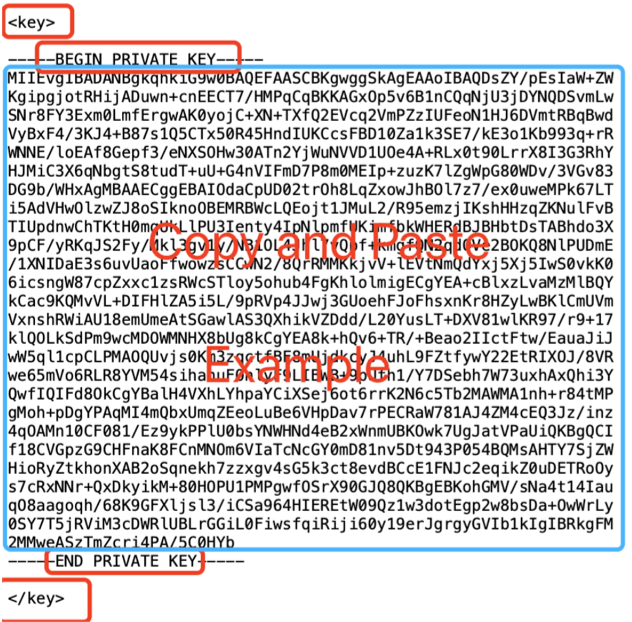
Client Key in [.ovpn] file
SoftEther VPN
Server: Disable
Bridge: Disable
Client: Disable
Config: -
Well done! Click "Save" to save the configuration, then click "Apply Settings".
Step 5: Check and configure DNS
Navigate to "Setup > "Basic Setup"
Make sure the DNS server is not blocked, you may fill following DNS servers in the Static DNS 1/2/3 field, filling each one with a different DNS Server:
8.8.8.8
8.8.4.4
208.67.222.222
208.67.222.220
8.26.56.26
8.20.2247.20
209.244.0.3
208.244.0.4
Then click "Save" & "Apply Settings" at the bottom of the page! You are all set now!
Step 6: Reboot your router to connect
Reboot your router and wait for a minute or two for everything to settle, then check the status of the OpenVPN client in "Status" > "OpenVPN", if the values are not zero, the OpenVPN is connected. Also, You may visit this site to verify that your IP address has changed!
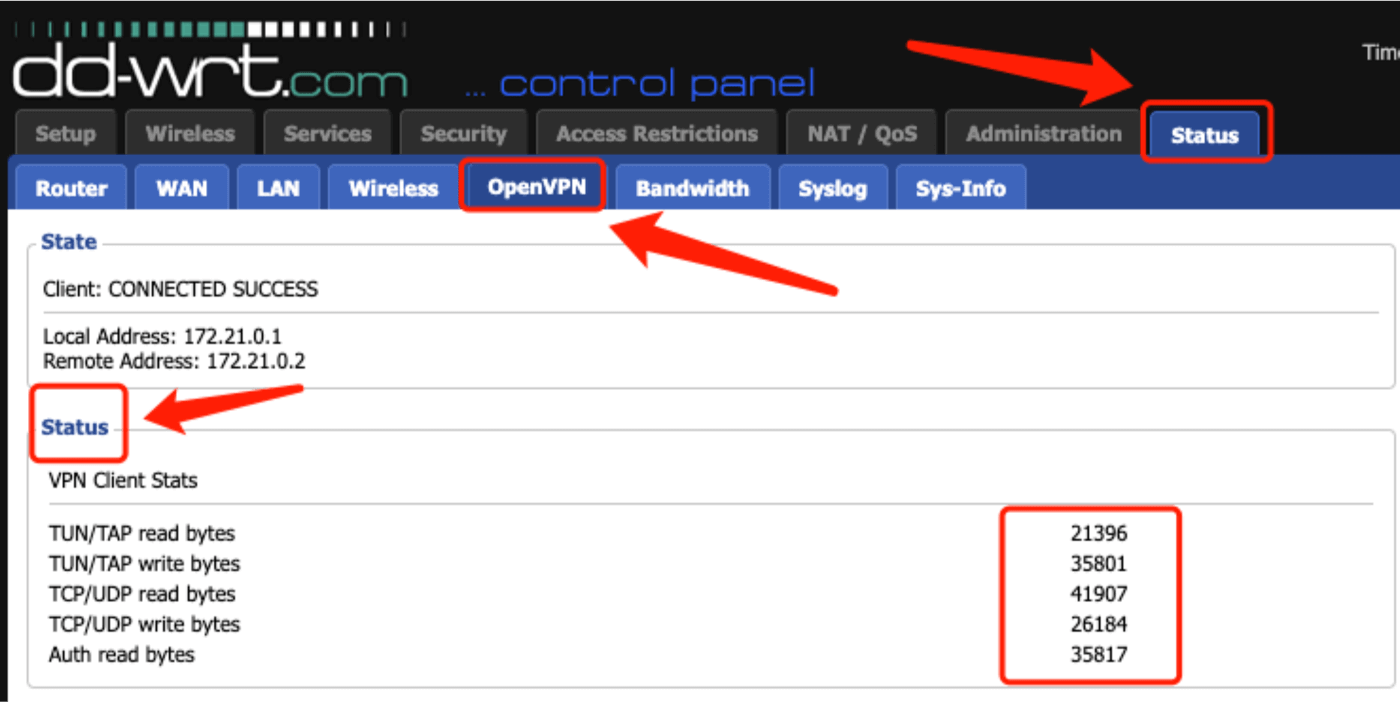
Questo articolo è stato utile?
Grazie per il tuo feedback!
Perché questo articolo non è stato utile?
